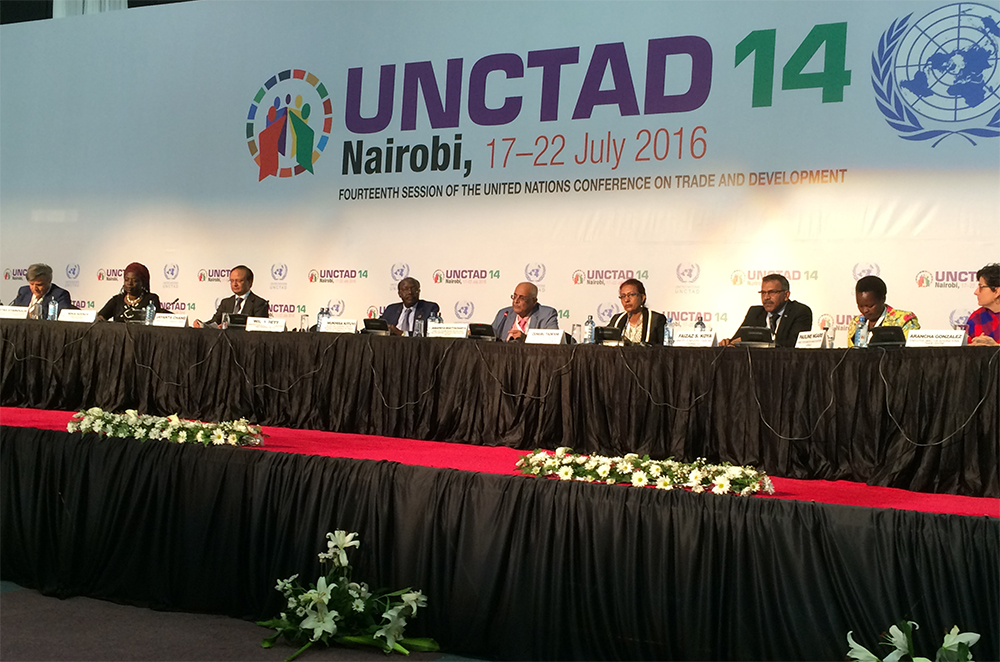
Relocation of female labour from agriculture to non-farm activities is essential for raising their linkages to the market, productivity and income. This will facilitate breaking the “gender segmentation” in the labour and product markets. Thus women should have full access to productive assets – finance, technology, market intelligence and capacity-building inputs – through acquisition and inheritance and public policy support.
Debapriya Bhattacharya, Distinguished Fellow, Centre for Policy Dialogue (CPD) was making these remarks while chairing a ministerial roundtable on “Women as Agents for Economic Change” in Nairobi on Tuesday 19 July 2016 at the 14th Conference of United Nations Conference on Trade and Development (UNCTAD). UNCTAD, the lead agency of the United Nations promoting trade and development in the developing countries, meets every four year to review its strategy and work plan. It is currently having its quadrennial conference in Nairobi (17-22 July 2016). The conference was also attended by Anisatul Fatema Yousuf, Director, Dialogue & Communication, CPD.
Debapriya mentioned that 26 out of a sample 143 countries have statutory legislation discriminating women against men regarding access to productive assets. He further recalled that the new global development framework 2030 Agenda has called for doing away with such anti-woman provisions through legislative and regulatory reforms for women’s economic empowerment.
Earlier, in his opening remarks Mukhisa Kituyi, Secretary-General of the UNCTAD pointed out that three-quarters of employed women in the least developed countries (LDCs) work in agriculture and play a central role in ensuring food security and nutrition. However, they face gender-specific constraints leading to low productivity and low income.
The round table was also addressed by Zenebu Tadesse, Ethiopian Minister for Women and Children Affairs, Jayanta Chand, Nepalese Minister for Commerce, Fayaz Siddiq, Fijian Minister for Trade and Tourism, Amelia Kyambadde, Ugandan Minister for Trade, Industry and Cooperatives, and Willy Bett, Kenyan Minister for Agriculture and Livestock.


